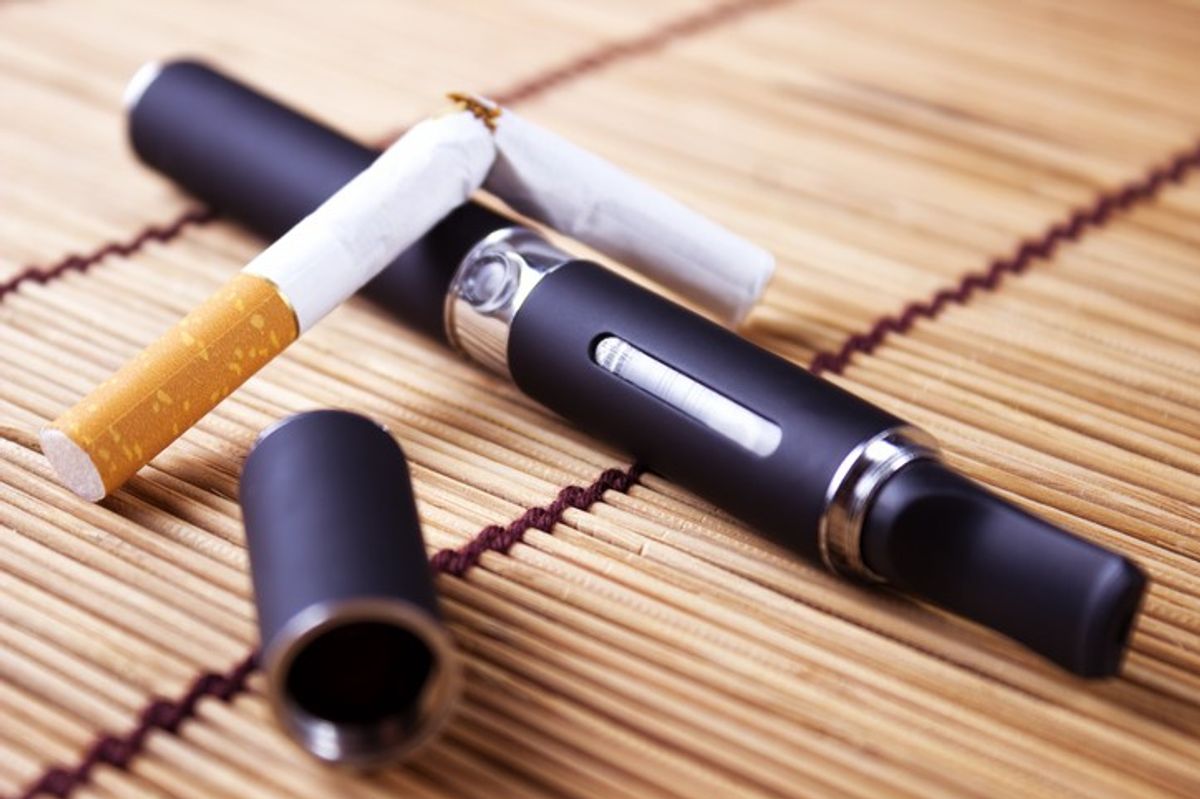A new research from Brunel University London has revealed how switching smokers to vapes could help save the NHS millions.
For the study, published in the British Journal of Healthcare Management, Prof Francesco Moscone, a business economics expert from Brunel University London, calculated that a traditional smoker transitioning to a reduced risk product (RRP) such as vapes, would have a 70 per cent reduction in smoking-related diseases.
This was based on the fact that they would no longer be exposed to the harmful chemicals in traditional cigarettes.
“Under a 50 per cent conversion scenario, with half of smokers turning to RRPs, the NHS would save an estimated £518 million in an average year. If the conversion rate was just 10 per cent, the NHS would save £103 million,” Prof Moscone said.
The cost of smoking to the NHS in England is estimated to be £2.5 billion a year. Smoking accounts for approximately 74,600 deaths a year in England and there were an estimated 506,100 smoking-related admissions to England’s hospitals between 2019 and 2020.
“Cancer, heart disease, stroke, chronic bronchitis, and emphysema are the five main disease categories caused by smoking cigarettes. Such illnesses put significant burdens on the NHS, which we know is already under increasing pressure,” Moscone said.
“If smokers transitioned to RRPs, it would significantly reduce the pressure on the NHS and free up much-needed hospital resources for other treatments.”
The study reflected on geographical differences, with the number of people with lung cancer in the North East & Yorkshire region almost double the number in other English regions.
Moscone highlighted that the region is currently facing significant smoke-related health challenges, with lung cancer treatment alone costing the NHS more than £156 million a year, and would therefore see the biggest reduction in savings if smokers switched to RRPs.
“If 10 per cent of smokers in the North East & Yorkshire switched to RRPs, the total expenditure savings for the NHS would be £30 million. If half of smokers in the region made the switch, the NHS would save £148 million,” he said.
Moscone added that embracing the transition to RRPs would also help the country to regain momentum and align with the ambitious 2030 plan.
“Although the long-term effects of RRPs are still unknown, we know from previous research that alternatives to traditional cigarettes result in a 90 per cent reduction in the exposure to chemicals that are major contributors to health risks,” he noted.
“By embracing innovation and recognising the potential of RRPs, we can chart a course towards a future with reduced risks while remaining resolute in our commitment to achieving our goals.”


